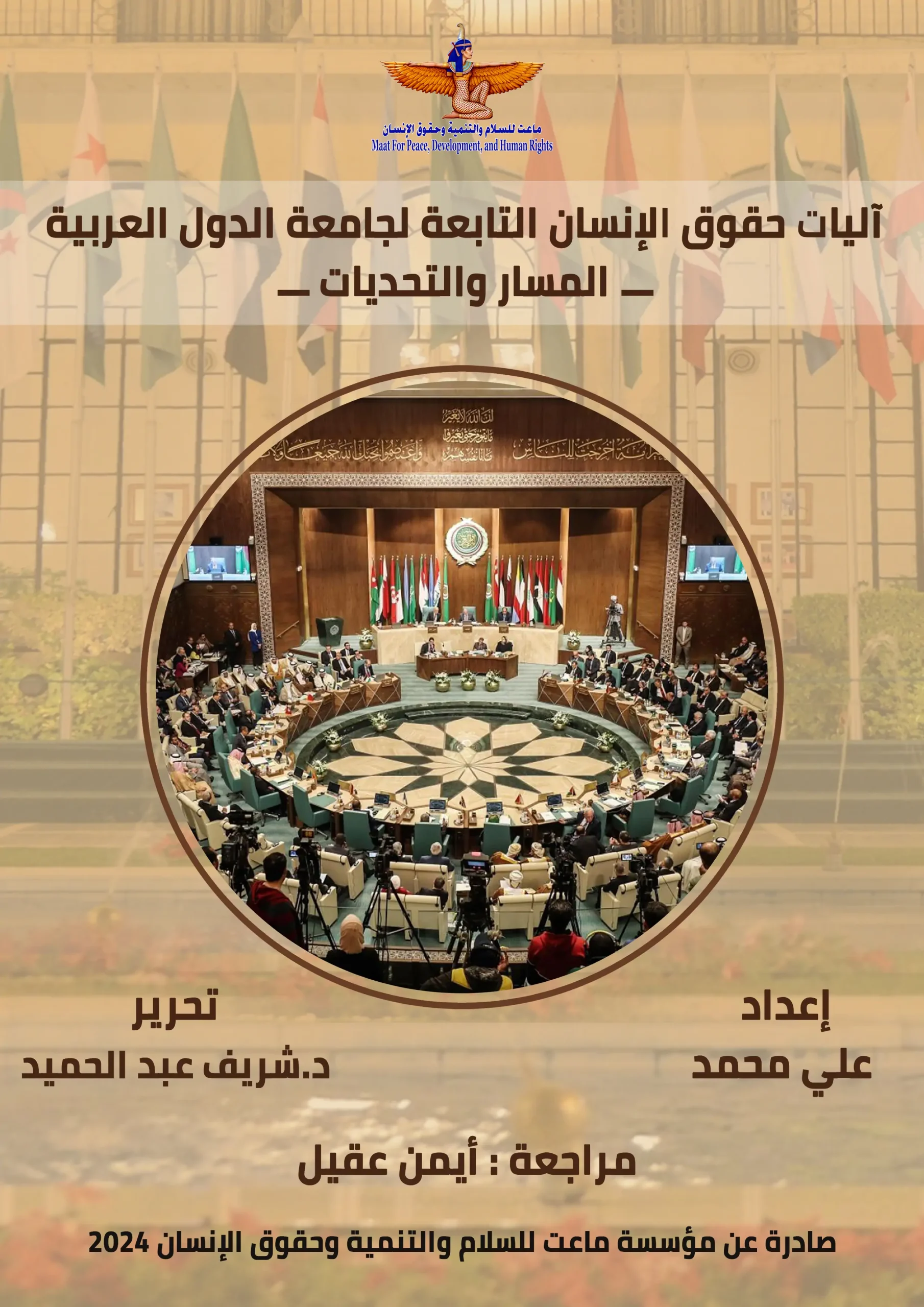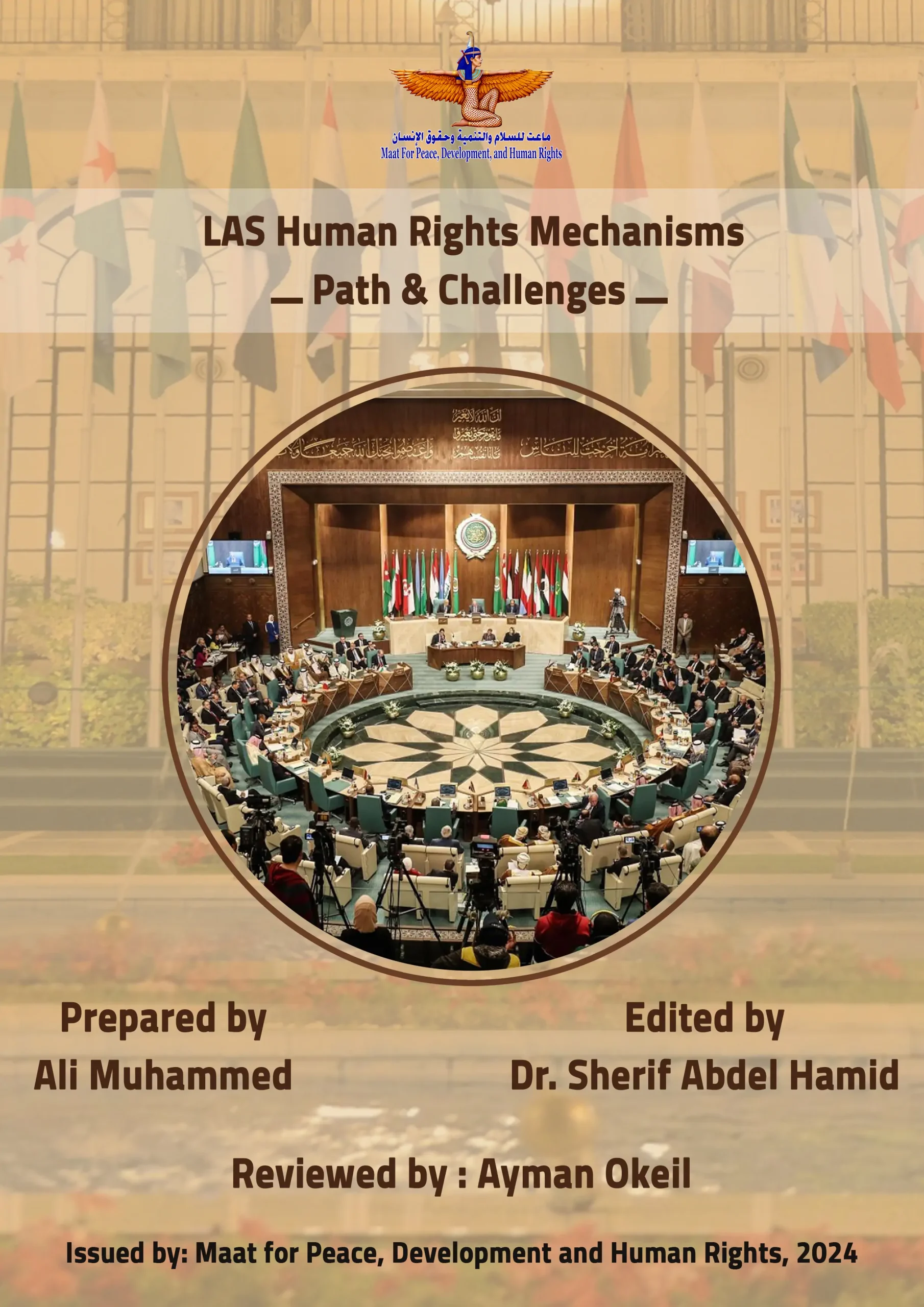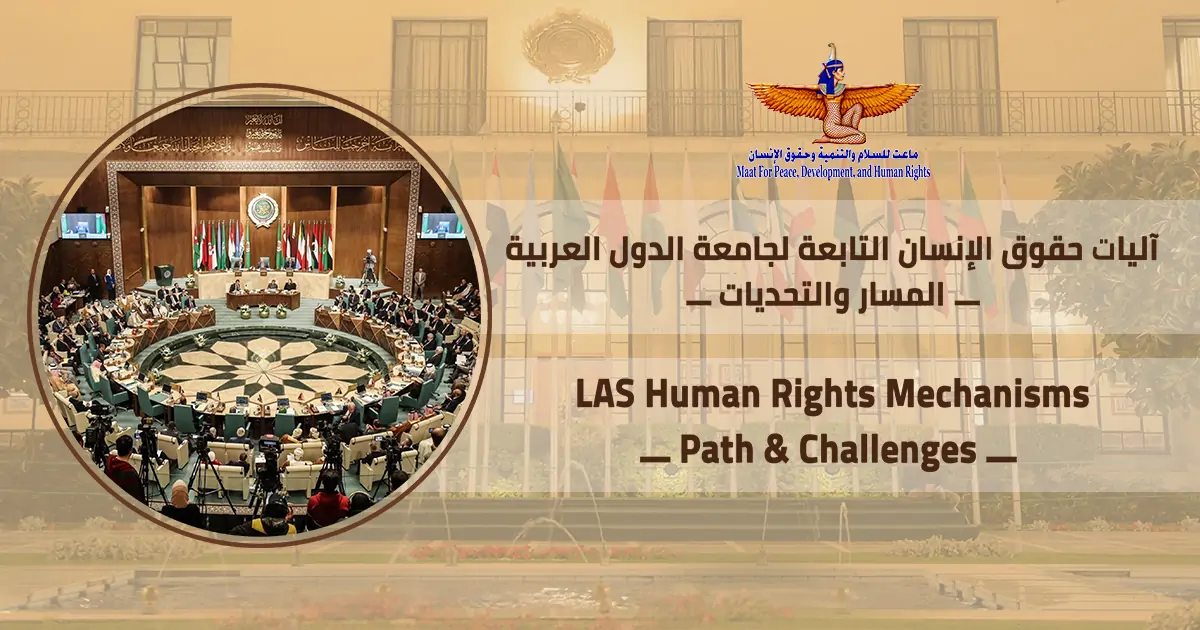Maat: Gap between the human rights mechanisms of the Arab League and Arab civil society is widening
"Okeil": LAS 10-Year Charter for Arab Civil Society Organizations is a mere illusion and lacks any evidence of its existence
Today, on Wednesday, January 31, 2024, Maat for Peace, Development, and Human Rights released a new study titled "LAS Human Rights Mechanisms: Path & Challenges." The study comprises three main sections: the human rights mechanisms affiliated with the League of Arab States; the interaction between civil society and these mechanisms; and the potential benefits from similar regional human rights experiences. Throughout the study, Maat emphasizes the significance of regional human rights mechanisms and their crucial role in promoting and advancing human rights in specific geographical areas. The study focuses on the human rights mechanisms associated with the League of Arab States, which can be categorized into fundamental mechanisms. These include the Arab Permanent Committee on Human Rights, which operates under the Council of the League of Arab States, the Charter Committee, an independent body responsible for monitoring the implementation of the provisions outlined in the Arab Charter on Human Rights, and the Legal and Legislative Rights Committee affiliated with the Arab Parliament for Human Rights. Additionally, there are supporting departments such as the Human Rights Department of the General Secretariat, the Arab Court for Human Rights (whose statute has been adopted but not yet enforced), and the Department of Civil Society Organizations in the Arab League.
The study focuses on the human rights mechanisms associated with the League of Arab States, which can be categorized into fundamental mechanisms. These include the Arab Permanent Committee on Human Rights, which operates under the Council of the League of Arab States, the Charter Committee, an independent body responsible for monitoring the implementation of the provisions outlined in the Arab Charter on Human Rights, and the Legal and Legislative Rights Committee affiliated with the Arab Parliament for Human Rights. Additionally, there are supporting departments such as the Human Rights Department of the General Secretariat, the Arab Court for Human Rights (whose statute has been adopted but not yet enforced), and the Department of Civil Society Organizations in the Arab League.
Maat criticizes the delay in the efforts of the Arab Permanent Committee for Human Rights to establish unified standards for granting observer status to civil society organizations. This delay is justified by the need for further study, although these efforts began almost a decade ago following the Arab League Council Resolution No. 7788 of 2014, which called for the formulation of unified standards that Arab civil society organizations should meet to be granted observer status in the organs and mechanisms of the Arab League. Maat draws attention to the challenges and gaps that the human rights mechanisms affiliated with the League of Arab States face, including the lack of independence among the members of these mechanisms, insufficient experience in the field of human rights, and the stagnation of the internal system of the Arab Charter on Human Rights Committee, despite calls to revise this system. Furthermore, the challenges include the absence of a mechanism to address delayed reports from state parties to the Arab Charter on Human Rights and limited communication between the human rights mechanisms within the LAS and Arab civil society. The study highlights the failure to enforce the statute of the Arab Court for Human Rights as of the writing of this study due to incomplete ratifications. According to Article 33 of the statute, it is expected to come into effect after ratification by seven member states and the submission of necessary documents. However, these ratifications have not been completed yet.
Ayman Okeil, an international human rights expert and Chainman of Maat, emphasizes the significant gap between civil society in the Arab region and the human rights mechanisms associated with the LAS. This gap renders civil society the weakest link in its engagement with the Arab human rights system. Okeil further states that the Arab Decade for Community Organizations, announced by the League of Arab States in 2016 to cover the period from 2016 to 2026, is merely an illusion. Despite extensive promotion by the League of Arab States and its agencies, the Charter has not been published, and there is no evidence of its existence. Furthermore, its announcement was not accompanied by any concrete measures to foster real interaction between civil society, the Arab League, and its human rights mechanisms.
Maat concludes by calling for necessary amendments to the mandate of the Arab Permanent Committee on Human Rights. These amendments should enable the committee to appoint special rapporteurs and external missions to address specific issues, similar to other regional human rights committees. Additionally, the implementation of Arab League Council Resolution No. 7788, which calls for the establishment of unified standards for granting observer status to Arab civil society organizations in the organs and mechanisms of the Arab League, is essential. The internal regulations of the committee should also be amended to enhance its performance and facilitate the participation of a greater number of civil society organizations. Maat underlines that any efforts to improve Arab human rights mechanisms must prioritize granting independence to the members of these committees, with a clear separation of their official positions from their roles in these mechanisms.

 |
 |
shortlink: https://maatpeace.org/en/?p=41383












